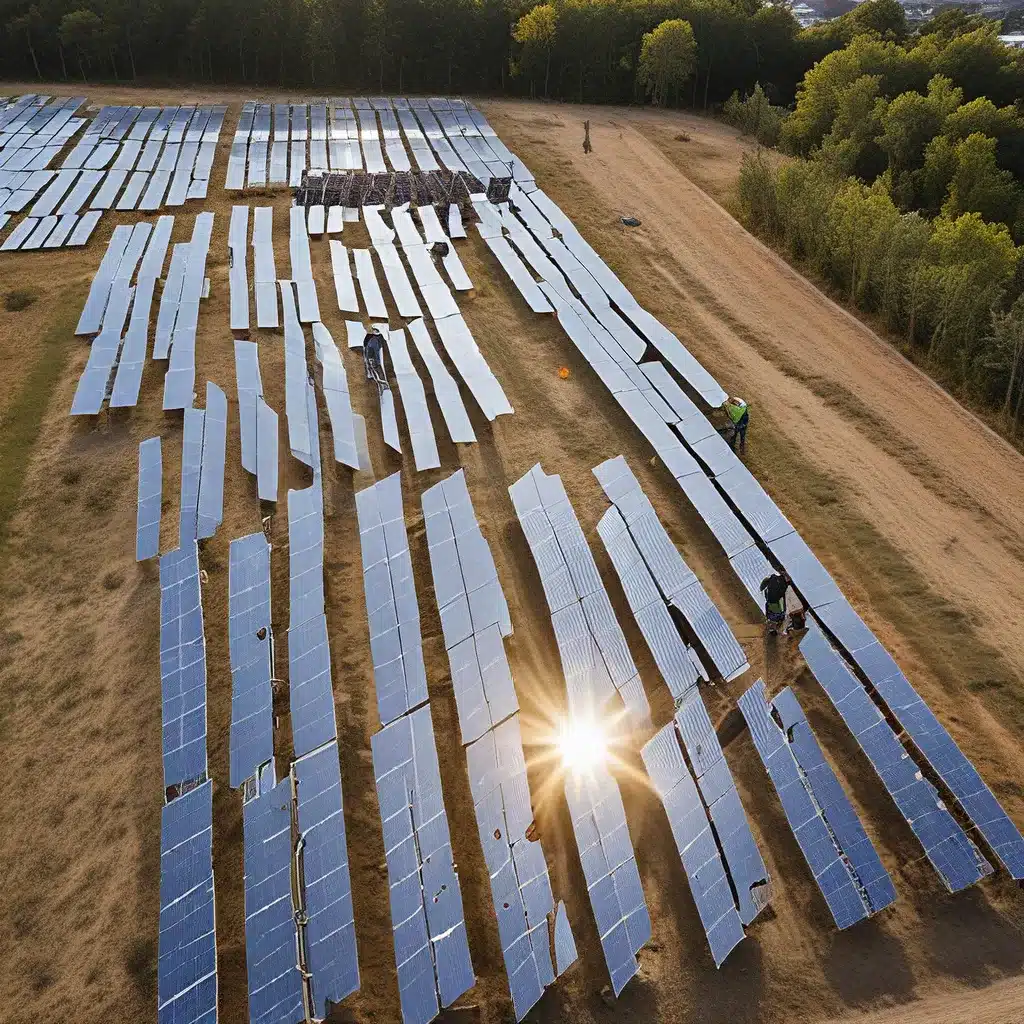
As an avid supporter of renewable energy solutions, I’ve been eagerly following the rise of community solar initiatives across the country. These innovative programs are poised to revolutionize the way we think about, access, and benefit from clean energy. And in my home state of Connecticut, the Shared Clean Energy Facilities (SCEF) program is leading the charge.
Empowering Communities through Shared Solar
One of the most exciting aspects of community solar is its ability to bring renewable energy within reach of everyone, regardless of their home’s suitability for rooftop solar panels. By allowing multiple households and businesses to collectively subscribe to a shared solar facility, SCEF is democratizing access to the benefits of solar power.
Recent legislative changes have expanded the SCEF program, allowing for larger projects ranging from 100 to 5,000 kilowatts AC. This means even more communities can come together to harness the power of the sun and reduce their energy bills through the program’s on-bill credit system.
But it’s not just about the financial savings. Community solar also fosters a sense of collective responsibility and environmental stewardship within the neighborhoods it serves. By participating in these shared renewable energy initiatives, residents and businesses are actively contributing to a greener, more sustainable future for their communities.
Navigating the SCEF Program: Eligibility and Enrollment
If you’re a customer of Eversource or United Illuminating in Connecticut, you may be eligible to subscribe to a SCEF project. The process is relatively straightforward – simply visit the relevant utility’s webpage to determine your eligibility and complete the application.
Once enrolled, you’ll start seeing the on-bill credit on your monthly energy statement, effectively lowering your energy costs. And the best part? You don’t have to worry about the installation or maintenance of the solar panels – that’s all handled by the SCEF project developer.
The SCEF program has also expanded its yearly capacity, from 25 megawatts to 50 megawatts, allowing even more communities to reap the benefits of shared solar.
Shaping the Future of SCEF: Public Engagement and Feedback
As the SCEF program continues to evolve, the Connecticut Department of Energy and Environmental Protection (DEEP) is actively seeking public input to shape its future directions. In a recent public meeting, DEEP explored the potential for Agrivoltaics – the co-location of solar panels and agricultural activities – as a way to further optimize land use and support local food production.
DEEP has also maintained a 20% bid preference for projects sited on brownfields or landfills, as well as a 30% preference for solar canopies. These incentives help drive the development of community solar projects in underutilized or underserved areas, ensuring that the benefits of renewable energy are accessible to all.
I encourage all interested parties, whether homeowners, businesses, or community organizations, to engage with the public process and share their thoughts on the future of the SCEF program. Your voice can help shape a more inclusive, equitable, and sustainable renewable energy future for our state.
Exploring the Broader Landscape of Community Solar
While Connecticut’s SCEF program is a shining example, the growth of community solar is not limited to our state. Community solar markets are rapidly expanding across the country, with states like Massachusetts, New York, and Minnesota leading the charge.
Each state has its own unique approach, incentives, and regulations, but the underlying premise remains the same: empowering communities to collectively harness the power of the sun. By tapping into this shared renewable energy model, we can accelerate the transition to a clean energy future while ensuring that the benefits are equitably distributed.
Sparking Change, One Solar Panel at a Time
As I reflect on the transformative potential of community solar, I can’t help but feel a sense of excitement and optimism. This is more than just a renewable energy solution – it’s a catalyst for building stronger, more resilient communities. By coming together to invest in shared solar, we’re not only reducing our carbon footprint but also fostering a shared sense of purpose and collective responsibility.
And who knows – maybe one day, your local renewable energy solutions provider will be part of the next big community solar project, helping to illuminate the path towards a greener, more sustainable future for all.

